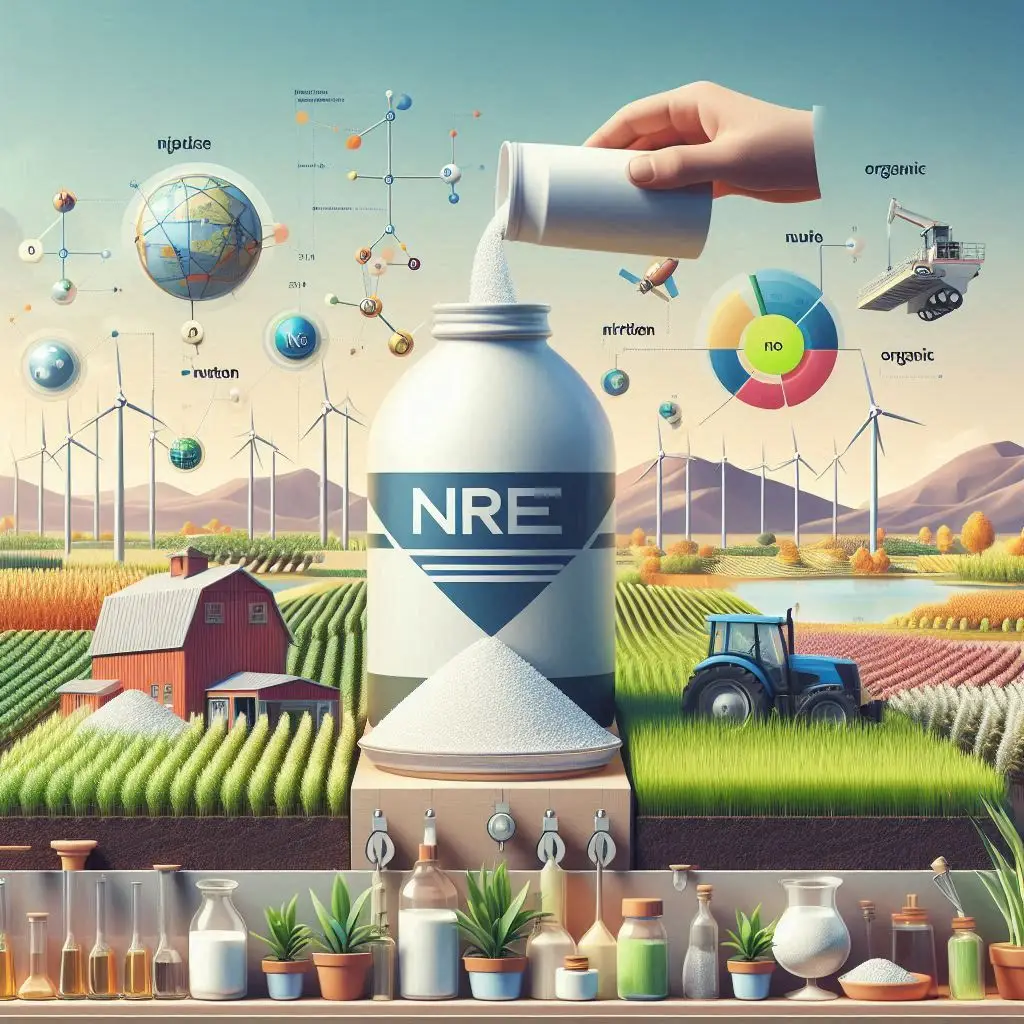
High, Low, Natural, and Organic Nitrogen Fertilizers: Exploring Urea's Role
Introduction
Fertilizers play a crucial role in modern agriculture, helping to nourish plants and ensure sustainable crop yields. Among the various types of fertilizers, nitrogen fertilizers stand out due to their importance in promoting plant growth. In this article, we will explore the differences between high, low, natural, and organic nitrogen fertilizers, with a specific focus on urea—one of the most widely used nitrogen fertilizers in agriculture. We will discuss how urea fits into these categories, its advantages, and the considerations that come with its use.
High Nitrogen Fertilizers
High nitrogen fertilizers are essential for stimulating plant growth, particularly in the early stages. These fertilizers, including urea, are rich in nitrogen, an element that plays a key role in processes like photosynthesis, protein synthesis, and overall plant development. Urea, which contains approximately 46% nitrogen, is one of the most widely used high-nitrogen fertilizers due to its high efficiency and rapid effectiveness.
The benefits of high nitrogen fertilizers like urea are clear: they promote lush, green foliage and help increase crop yields by providing the necessary nutrients for vigorous plant growth. Farmers often rely on urea to meet the nitrogen demands of high-demand crops, such as cereals and vegetables, ensuring they grow to their full potential.
However, the use of high-nitrogen fertilizers comes with environmental concerns. Overuse of urea can lead to nitrogen runoff, which contaminates nearby water bodies, resulting in algae blooms and disrupting aquatic ecosystems. This highlights the need for careful and controlled application of urea to maximize benefits while minimizing negative environmental impacts.
Low Nitrogen Fertilizers
Low nitrogen fertilizers offer an alternative for those seeking to reduce the environmental impact of agricultural practices. These fertilizers contain less nitrogen than traditional fertilizers like urea, and they can be beneficial in reducing nitrogen runoff and promoting sustainable agriculture.
The primary advantage of low-nitrogen fertilizers is their ability to prevent excess nitrogen from leaching into groundwater or running off into rivers and lakes. This can significantly reduce the risk of eutrophication, a process where excessive nitrogen in water bodies promotes algae growth, leading to oxygen depletion and harm to aquatic life.
While low-nitrogen fertilizers may not provide the rapid growth effects that high-nitrogen fertilizers like urea offer, they are particularly valuable for promoting long-term soil health and minimizing environmental damage. As with high-nitrogen fertilizers, it’s essential to monitor nutrient levels carefully to ensure that crops receive the necessary nutrition without excess.
Natural Nitrogen Fertilizers
Natural nitrogen fertilizers are derived from organic sources such as compost, manure, and plant residues. These fertilizers offer a more sustainable and eco-friendly alternative to synthetic options like urea, contributing to soil health and reducing the carbon footprint of agricultural practices.
One of the main advantages of natural nitrogen fertilizers is their slow-release nature. Unlike urea, which provides a quick burst of nitrogen, natural fertilizers gradually release nutrients over time, reducing the risk of nitrogen leaching and promoting balanced nutrient uptake by plants. This slow-release feature is ideal for supporting long-term soil fertility and minimizing environmental contamination.
Furthermore, natural nitrogen fertilizers enrich the soil with organic matter, which improves its structure, moisture retention, and nutrient-holding capacity. By fostering healthy soil ecosystems, natural fertilizers support biodiversity and contribute to the overall sustainability of agricultural systems.
However, the nutrient content of natural nitrogen fertilizers is typically lower than that of synthetic fertilizers like urea, and their effects may take longer to become apparent. Careful nutrient management is crucial when using natural fertilizers to ensure that plants receive sufficient nutrition.
Organic Nitrogen Fertilizers
Organic nitrogen fertilizers are similar to natural fertilizers but are specifically made from organic materials like bone meal, blood meal, and fish emulsion. These fertilizers are widely used in organic farming systems, where synthetic chemicals like urea are often restricted.
Organic nitrogen fertilizers offer numerous benefits, including enhancing soil fertility and promoting environmental sustainability. These fertilizers improve soil structure, increase microbial activity, and reduce the need for synthetic inputs, which makes them an attractive option for eco-conscious farmers and gardeners.
Like natural fertilizers, organic options tend to release nitrogen slowly, reducing the risk of nitrogen burn (a condition caused by excessive nitrogen) and nutrient leaching. While organic nitrogen fertilizers are generally more environmentally friendly than urea, they may require larger quantities to achieve the same nitrogen levels, making them less cost-effective in some situations.
Conclusion:
In conclusion, urea plays a significant role in modern agriculture as a high-nitrogen fertilizer that helps promote plant growth and increase crop yields. However, its use must be carefully managed to prevent environmental harm, such as nitrogen runoff and soil nutrient imbalances.
For those seeking more sustainable options, low-nitrogen, natural, and organic fertilizers offer viable alternatives that can reduce the environmental impact of agricultural practices while still supporting plant health. Each type of fertilizer, including urea, has its strengths and drawbacks, and choosing the right one depends on factors such as crop needs, environmental considerations, and long-term soil health.
Farmers and gardeners alike should carefully assess their nutrient management practices, considering both the immediate benefits and the long-term consequences of fertilizer use. By balancing the use of urea with sustainable alternatives, we can ensure healthier crops, healthier soils, and a more sustainable agricultural future.

